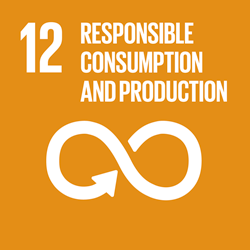Technological watch
Zinc Oxide Nanoparticles Improve Salt Tolerance in Rice Seedlings by Improving Physiological and Biochemical Indices
Understanding the salinity stress mechanisms is essential for crop improvement and sustainable agriculture. Salinity is prepotent abiotic stress compared with other abiotic stresses that decrease crop growth and development, reducing crop production and creating food security-related threats. Therefore, the input of metal oxide nanoparticles (NPs) such as zinc oxide nanoparticles (ZnO-NPs) can improve salt tolerance in crop plants, especially in the early stage of growth. Therefore, the aim of the current study was to evaluate the impact of ZnO-NPs on inducing salt tolerance in two rice (Oryza sativa L.) genotypes of seedlings. An undocumented rice landrace (Kargi) and salinity tolerance basmati rice (CSR 30) seeds were grown in a hydroponic system for two weeks with and without 50 mg/L concentrations of ZnO-NPs in various doses of NaCl (0, 60, 80, and 100 mM). Both Kargi (15.95–42.49%) and CSR 30 (15.34–33.12%) genotypes showed a reduction in plant height and photosynthetic pigments (chlorophyll a and b, carotenoids, and total chlorophyll), Zn content, and K+ uptake under stress condition, compared with control seedlings. On the other hand, stress upregulated proline, malondialdehyde (MDA), Na+ content, and antioxidant enzyme activities—namely, those of superoxide dismutase (SOD), ascorbate peroxidase (APX), catalase (CAT), and glutathione reductase (GR)—in both O. sativa genotypes over the control. However, ZnO-NP-treated genotypes (Kargi and CSR 30) restored the photosynthetic pigment accumulation and K+ level, reforming the stomata and trichome morphology, and also increased antioxidant enzymes SOD, APX, CAT, and GR activity, which alleviated the oxidative stress, while reducing the level of MDA, proline, and H2O2 under stress condition. The present findings suggest that adding ZnO-NPs could mitigate the salinity stress in O. sativa by upregulating the antioxidative system and enhancing the cultivation of undocumented landrace (Kargi) and basmati (CSR 30) genotypes of O. sativa in salinity-affected areas.
Publication date: 13/07/2022
Author: Abhishek Singh
Reference: doi: 10.3390/agriculture12071014






